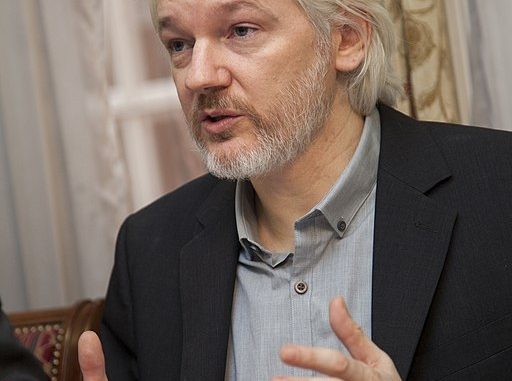
The WikiLeaks founder, Julian Assange, won a partial victory in his long battle to avoid extradition from Britain to the US. District Judge Baraister, at the Old Bailey court, ruled earlier this week against Assange’s removal to face criminal charges over classified US secret documents leaked in 2010. However, the judge ruled on Wednesday 6 January to refuse Assange bail, meaning he will remain imprisoned in Belmarsh high-security prison in London. Assange’s defence team argued that Belmarsh prison has high levels of covid infections and that Asssange’s mental health is deteriorating. His legal defence said they will contest the bail ruling in the High Court.
The US has said that it will appeal the court’s decision not to extradite Assange. He faces charges of computer hacking and violating the US’s 1917 Espionage Act, which could mean a sentence of 175 years in prison.
Released just over a decade ago, the WikiLeaks revelations shed light on thousands of cases of state torture, war crimes (in Afghanistan, Iraq and elsewhere), state surveillance, corruption and human rights abuses by the US and other imperialist states and their client regimes. For the major powers, the WikiLeaks actions were a very unwelcome and highly embarrassing expose of the true nature of the capitalist state and imperialism’s “war on terror”, and a serious blow against their authority and prestige.
Establishment’s vengeance
For years, the US establishment has sought vengeance against Assange and ‘whistleblowers’ such as Chelsea Manning. The capitalist ruling classes want to forcibly stop or muzzle any serious investigative journalism into the murky and illegal actions and human rights abuses of capitalist states, and the sordid actions of big business.
Assange sought refuge in the Ecuadorian embassy in London in 2012 after the UK’s Supreme Court ruled that he could be extradited to Sweden to face sexual assault allegations (the investigation and possible related charges were later dropped). Assange’s legal defence argued, at the time, that this was a ploy to enable his extradition to the US to face trial for the leaks. Assange remained in small confines in the Ecuadorian embassy for seven years until a change of regime in Ecuador saw the betrayal of his right to asylum. Assange was forcibly removed from the embassy by police in April 2019. After serving fifty weeks in jail for skipping bail, Assange has been imprisoned in Belmarsh prison, despite serious mental and physical health deterioration, pending the US extradition case. Medical and legal experts, and UN Special Rapporteur on Torture, Nils Melzer, have called for Assange’s immediate release from degrading and dangerous confinement and “psychological torture.”
While Judge Baraister stopped Assange’s extradition to the US on the “substantial” grounds that American prison conditions where he would probably be held in near-total isolation could “risk that Mr Assange will commit suicide”, she did not accept the defence lawyers’ arguments that the US case against him is politically motivated. The judge, in effect, endorsed the US administration’s undemocratic attacks against investigative journalists and freedom of speech and other democratic rights. The US administration persecutes Assange under the US Espionage Act to get around the rights enshrined in the First Amendment of the US Constitution. The US Democratic National Committee began legal action in April 2018 against WikiLeaks.
Release Assange – workers’ movement defend freedom of speech!
The CWI supports the call for the immediate release of Julian Assange and the dropping of all charges against him. We demand an end to his cruel persecution by the Republican administration in the US, and by British authorities, as well as an end to the vindictive state actions against courageous whistle-blowers like Edward Snowden and Chelsea Manning.
It remains to be seen if the Biden presidency continues or not with this inhumane prosecution.
Freedom of the press and free speech were some of the precious rights won by generations of working-class people fighting against tyranny and oppression. These and other democratic rights must be strenuously defended, and in many cases refought for, by the international workers’ movement.
Special financial appeal to all readers of socialistworld.net |
Support building alternative socialist media Socialistworld.net provides a unique analysis and perspective of world events. Socialistworld.net also plays a crucial role in building the struggle for socialism across all continents. Capitalism has failed! Assist us to build the fight-back and prepare for the stormy period of class struggles ahead. Please make a donation to help us reach more readers and to widen our socialist campaigning work across the world. |
Donate via Paypal |
| M | T | W | T | F | S | S |
|---|---|---|---|---|---|---|
| 1 | 2 | 3 | ||||
| 4 | 5 | 6 | 7 | 8 | 9 | 10 |
| 11 | 12 | 13 | 14 | 15 | 16 | 17 |
| 18 | 19 | 20 | 21 | 22 | 23 | 24 |
| 25 | 26 | 27 | 28 | 29 | 30 | 31 |

